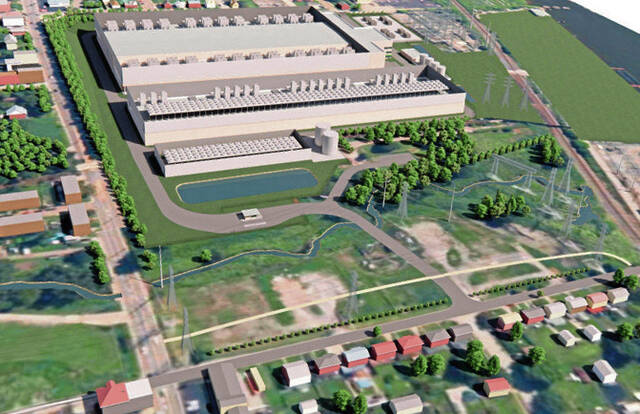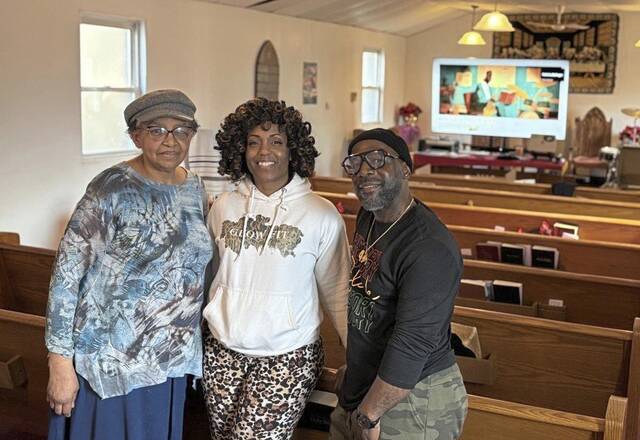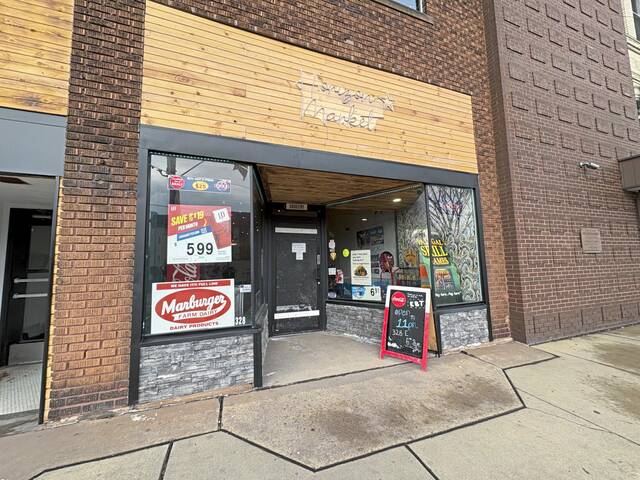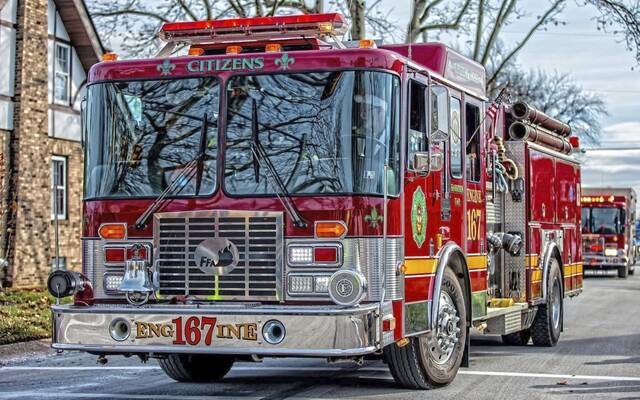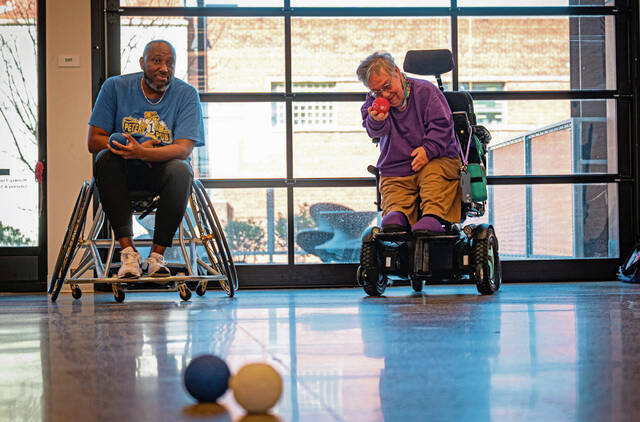It seems the data center discussions in Springdale won’t be ending anytime soon.
In the coming weeks, developers will appear before three borough bodies in an attempt to gain approval for the proposed data complex at the site of the former Cheswick Generating Station.
Here’s a rundown of what comes next:
Zoning Hearing Board
Developers from Allegheny DC Property Co. will appear before the Springdale Zoning Hearing Board on Wednesday, Oct. 22.
There, they’ll seek approval for a half dozen zoning variances at the site.
That essentially means the company is asking for exceptions to borough ordinances that restrict things like building heights and parking.
Most of the requests are fairly minor changes to borough parking and loading dock requirements at the site.
The more crucial requests are related to structure heights.
Allegheny DC is asking Springdale to adjust its maximum height restrictions to allow its building to stand 60 feet tall, 75 feet with rooftop equipment.
That’s in addition to a request to allow the site’s perimeter fence to stand 8 feet tall, which is a foot higher than the borough’s cap of 7 feet.
Unlike advisory bodies, the decisions of the Zoning Hearing Board are binding.
Since the ZHB is a “quasi-judicial body,” the meetings will likely resemble a typical court hearing, mostly consisting of attorneys questioning witnesses.
Any appeals to a board decision would occur in Allegheny County Court.
Planning Commission
By now, residents and developers are likely familiar with the Springdale Planning Commission.
The three-member body has, so far, held three meetings to hear developer’s plans and consider public comments.
But it hasn’t yet come to a decision.
The commission is an advisory group appointed by borough council to offer its recommendation for conditional use applications. Typically, the body helps craft conditions for approval of a project before sending it to council for a vote, but it can also recommend council reject the plans outright.
Conditions can cover any number of things, such as the noise level allowed at the site or the creation of community liaison to oversee the project.
If approved by council, the conditions become law.
The planning commission is set to reconvene at 6:30 p.m. Monday, Oct. 27 to potentially offer its recommendation to approve or reject Allegheny DC’s application and discuss conditions.
Springdale Council can technically vote to approve the project even if the planning commission recommends rejecting it.
It can also proceed with a vote without any recommendation at all, but Springdale officials have indicated they intend to wait for the commission’s opinion.
Springdale Council
Among the three bodies involved in the project, Springdale Council is the sole elected group, holding final say over the developer’s application.
On Thursday, Allegheny DC presented its first expert witness to council, real estate appraiser Anthony Barna, who discussed the potential tax revenue the center could generate.
Council also heard from architect Paul D’Onofrio, though his testimony didn’t conclude by the time the meeting ended.
Opposing the developer’s lawyers is Tom Kloehn, an attorney hired by Springdale resident Mitch Karaica.
Kloehn will cross-examine the developer’s witnesses and likely offer witnesses of his own.
In total, developers have said they intend to present eight experts.
In addition to Barna and D’Onofrio, council will hear from acoustician Jeff Babich; landscape architect Robert Maloney; civil engineer Mark Laborte; traffic and transportation engineer Rachel DePan; environmental consultant Amanda Black; and Brian Regli, who has presented many of the developer’s details so far.
Council will reconvene at 5:30 p.m. on Monday, Nov. 24 for the next round of testimony.
The council initially faced a Nov. 26 deadline to approve or reject the application or have it automatically approved, but developers agreed to extend the deadline until after testimony has concluded.
That testimony, however, could last weeks or months if it continues at its current rate.
If it stretches into 2026, the vote would likely fall to a new borough council.
What then?
After testimony concludes, council would have to vote to approve or reject the developer’s conditional use application.
If it approves the proposal, the project would move into its land development phase, where Allegheny County officials would become involved.
It’s during that phase that many of the finer details of the project are decided.
If council rejects the proposal, however, the developers could seek an appeal in county court that could overrule the borough’s decision.
A potential legal battle could climb to higher courts as well.


